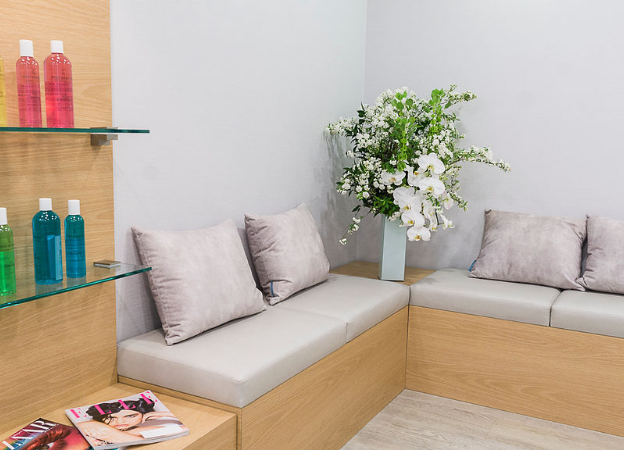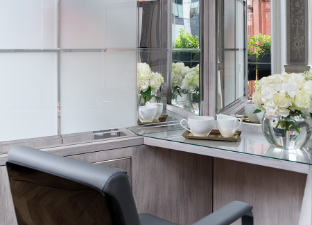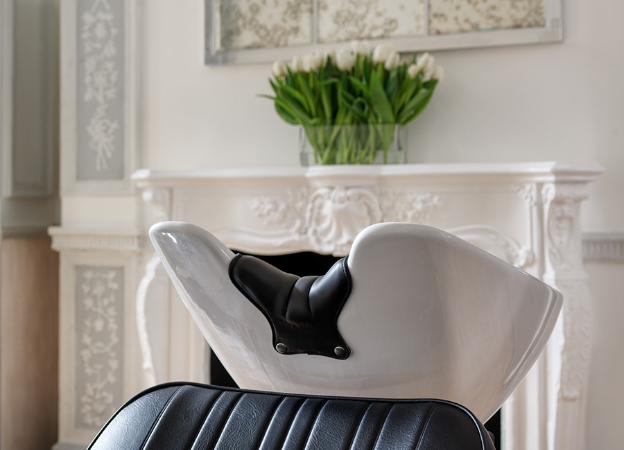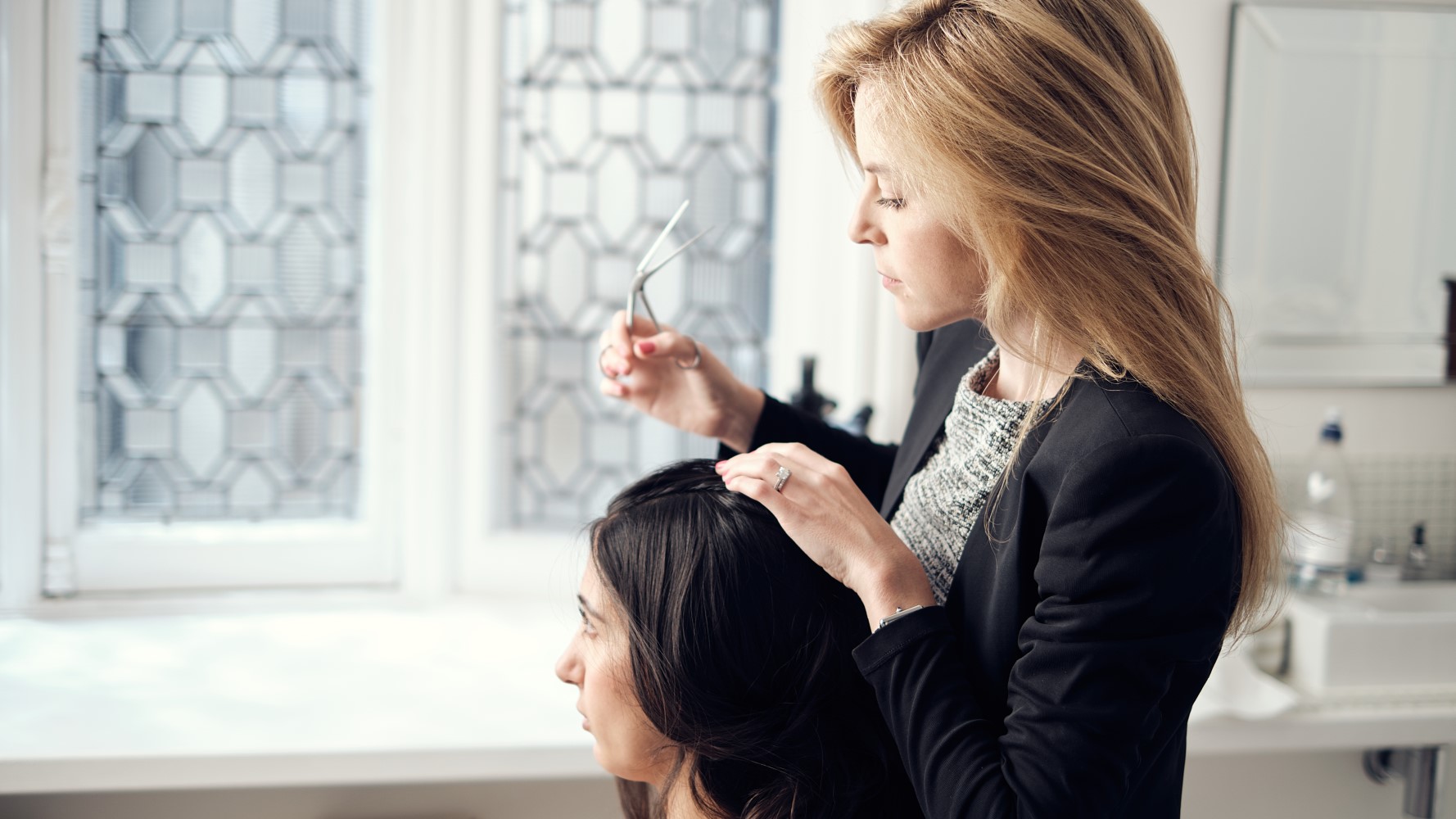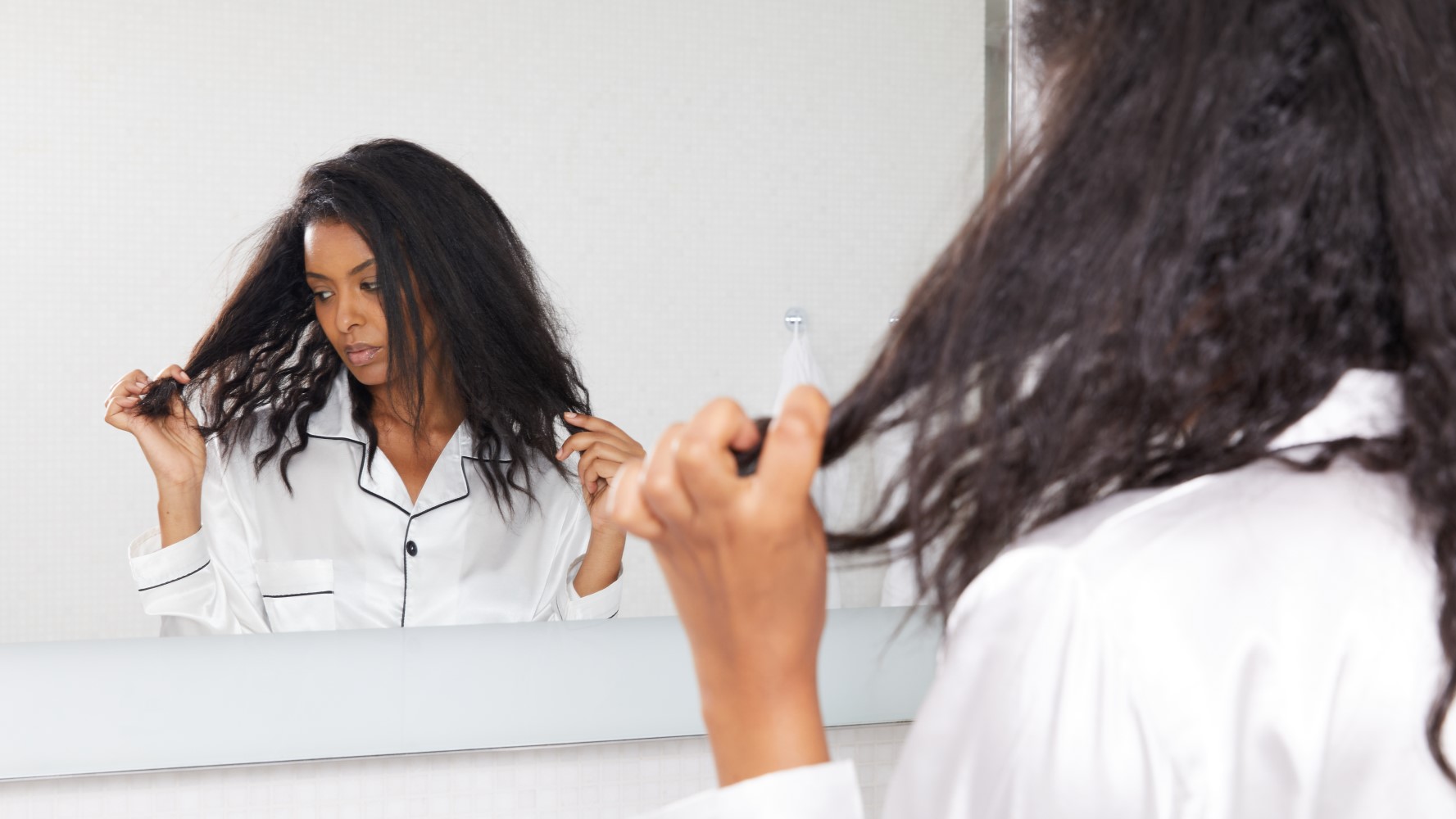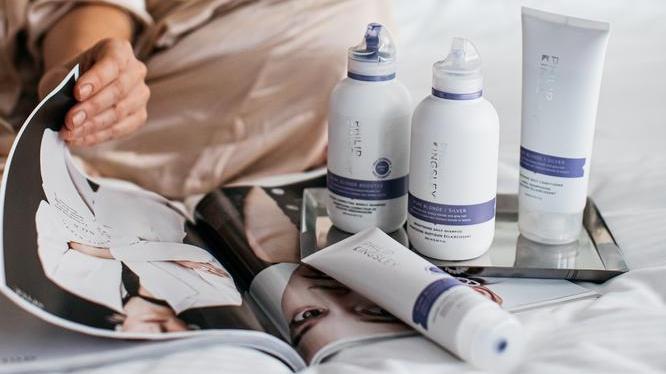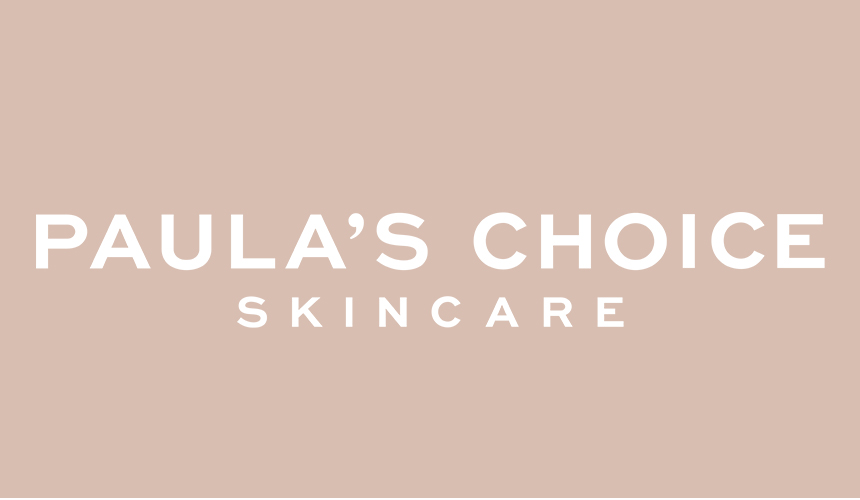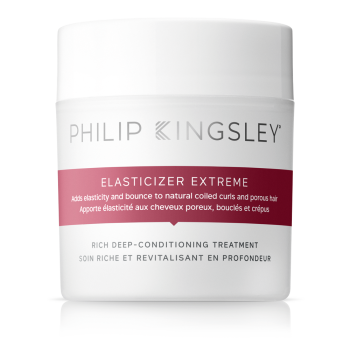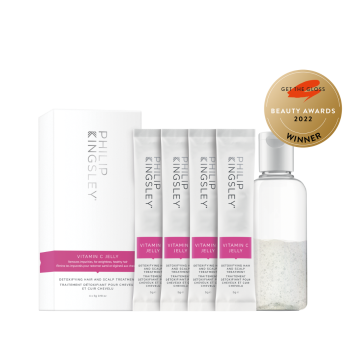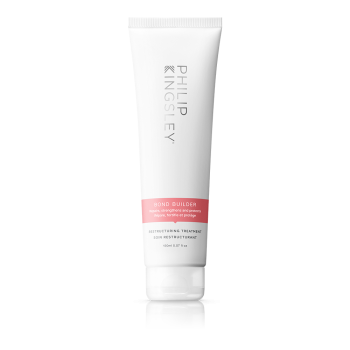Nicknamed the ‘Cosmetics Cop’ by Oprah Winfrey, Paula Begoun is a beauty mogul and founder of her eponymous skin care brand Paula’s Choice. Famed for cutting through the noise when it comes to effective ingredients and products, she loves (and is renowned for) busting common skin care myths, in the same way we love to demystify those surrounding hair care.
Known for its high-powered retinols, exfoliants and antioxidants, including the cult Skin Perfecting 2% BHA Liquid Exfoliant, Paula’s Choice is challenging ideas, beliefs and untruths to empower fans with smart, safe products backed by scientific research. The brand motto ‘beauty begins with truth’, perfectly encompasses this core value that sits at the heart of every formulation.
Paula’s career trajectory is impressive — a beauty industry veteran, (Paula’s Choice was founded over 25 years ago) and bestselling author, she has penned more than 23 books on the beauty industry, sharing her wealth of knowledge on how to care for your complexion with the world. She is also a firm advocate for identifying your skin type (in the same way we champion the importance of the four different hair textures) in order to pinpoint the perfect products and regime that works for you.
To mark our exciting cult product giveaway collaboration, (for which more details can be found over on our Instagram! we caught up with Paula as she shared her skin care expertise, must-follow tips and helped debunk some frequent skin care myths.
What is your must-have product in any skin care regime?
Paula Begoun: Without question it’s sunscreen, and that’s true for everyone! Sun protection is the most critical aspect of skin care. The research is 100% clear — from the day we are born, if we aren’t smart about sun protection, the accumulated damage is responsible for skin ageing, skin cancers, and increasing risk of acne and rosacea. New research suggests sun damage even triggers other diseases of the skin and body because of how it impairs the immune system.
What is one skin care ingredient you can’t live without and why?
Paula Begoun: Skin care is never about one ingredient, just like your diet can never be about one food. As the largest organ of the body, skin has many complex and important needs that one ingredient could never address. I would be cheating my skin if I only focused on one ingredient. In general, everyone’s skin thrives on an array of antioxidants, skin-restoring ingredients (like retinol, peptides, niacinamide, ceramides), barrier-replenishing ingredients (like glycerin, omega fatty acids, hyaluronic acid, plant oils), and exfoliants like AHAs and BHA, and of course sunscreen. Without these, your skin cannot be truly healthy, young and glowing.
Here at Philip Kingsley, we love to bust hair myths. What is one skin care myth you wish didn't exist?
There are so many I wish didn’t exist, I don’t even know where to begin! Perhaps the worst that has lasted the longest, is the myth that natural ingredients are better than lab-created ingredients, which is completely false. While there are many great ingredients for skin that come from natural sources, there are equally brilliant ones that are created in labs. In fact, some of the most effective, proven ingredients for skin that can truly repair and maintain its health, are developed in a laboratory. Some molecules, when lab-engineered, can even be less irritating and more active than the corresponding plant-based extracts. And, ultimately, your skin cannot tell the difference between the two sources!
Tell us about your own skin care routine.
I’ve been using my Paula’s Choice Skincare products since we launched on the internet in 1995. Even though I am proud of all my products, I don’t use them all, as not every formula or texture is right for my skin type. For example, for my oily skin I always prefer lightweight, fluid-textured products instead of using lotions or creams. My potent but water-light formulations for combination to oily skin, are the products I always choose.
Since I still have blemish-prone skin, plus congested and enlarged pores, with dehydration and dry skin around my eyes, I use specialised products to address those concerns. In the morning, I use my Skin Balancing Oil-Reducing Cleanser, Skin Balancing Pore-Reducing Toner, 10% Niacinamide Booster or my Clinical 20% Niacinamide Booster, Resist Ultra-Light Antioxidant Concentrate Serum, and my Omega+ Complex Eye Cream. At night I cleanse, tone, and use my Skin Perfecting 2% BHA Liquid Exfoliant, 10% Azelaic Acid Booster, Omega+ Complex Eye Cream, Lip and Body Treatment Balm, and Peptide Booster.
What have you learned along your journey to great skin?
I’ve written over 23 books on beauty, and I’ve been researching skin care for over 40 years, because I didn’t want anyone else to go through the endless disappointment, wasted money, and frustration to find what really works like I did. When it comes to taking care of your skin, facts and truth will get you the best results possible. I’ve also learned that beauty begins with self-discovery and self-acceptance. I define beauty not only by how I look, but also by my values, integrity, compassion, and what I do to help others.
Elasticizer is our cult product, what's yours at Paula's Choice? And what’s the story behind its ideation?
My Skin Perfecting 2% BHA Liquid is our bestselling product all over the world. I developed this for myself and I loved it, but never thought it would become this popular. It’s still one of my proudest product creations. It's a truly unique, gentle leave-on exfoliant that helps skin to shed built-up layers of dead skin cells the way young skin does naturally. This process becomes impaired due to sun damage and certain skin disorders, creating an important need for a gentle, topical product to step in and help skin do what it can’t on its own anymore. It works overnight to start unclogging pores, reduce blemishes, diminish wrinkles, improve skin tone, and even hydrate skin.
We’re advocates for identifying your hair texture and using the right, targeted products to care for it. How can you identify your skin type and why is it so important to do so?
Knowing your skin type is exceptionally important, as it drives everything about the texture and types of products you should be using. The more you know about your skin type, the more you'll be able to help your skin look and feel as balanced, healthy, young and natural as possible, which is the goal of great skin care. To determine which type of skin you have and learn which types of products are right for you, I recommend washing your face with a gentle cleanser and waiting 15-30 minutes. If your skin quickly shows oil diffused over the face, you have oily skin; if your skin starts experiencing some dryness and feels tight, you have dry skin. If the area around your nose, chin and central forehead starts looking oily, but your cheeks and jaw area start feeling slightly to moderately dry, you have combination skin.
If you have oily skin, you should be using products with a light fluid texture, if you have dry skin you need to use a creamier emollient texture, and if you have normal skin, use lotions. Once you know the texture of the products you should be using, then you need to determine which skin concerns you have, such as acne, skin discolorations, rosacea, wrinkles or clogged pores, then choose the treatment whose textures will work best for your skin type.
We know exfoliation is great for the scalp, what makes is great for the skin?
Exfoliation is a critical step in skin care. When you use the right type of exfoliant, the difference in the appearance and feel of your skin can improve overnight and continue improving over several weeks. With consistent use, exfoliation will maintain the health and youthfulness of skin. How you exfoliate is incredibly important, because using the wrong exfoliant will end up hurting skin.
Everyone needs to use an exfoliant, because over time, due to unprotected sun exposure, pollution, age, and some skin disorders, skin can no longer shed dead skin cells as it once did naturally. When skin can’t exfoliate on its own, it causes a build-up of dead layers of skin that can result in clogged pores, breakouts, and roughness and dullness. It impedes its ability to heal and repair itself.
Many people think using an abrasive scrub or rough cleansing brush or loofah, are the ways to exfoliate, but those are truly terrible, because they create micro-tears in the skin’s surface. This causes a litany of problems, including collagen breakdown, redness, dehydration, plus they destroy skin’s protective barrier, so it becomes more susceptible to environmental damage. Gentle is the key for any skin care step, including exfoliation.
What have you learned along your journey to great skin?
I’ve written over 23 books on beauty, and I’ve been researching skin care for over 40 years, because I didn’t want anyone else to go through the endless disappointment, wasted money, and frustration to find what really works like I did. When it comes to taking care of your skin, facts and truth will get you the best results possible. I’ve also learned that beauty begins with self-discovery and self-acceptance. I define beauty not only by how I look, but also by my values, integrity, compassion, and what I do to help others.
How can we do it right?
The best way to exfoliate is by using a leave-on AHA exfoliant (such as glycolic or lactic acid) or a leave-on BHA exfoliant (which is only salicylic acid). When an AHA or BHA leave-on exfoliant is formulated without any irritating ingredients — such as witch hazel, denatured alcohol or essential oils — the results can be amazing. Both AHAs and BHA minimise the appearance of wrinkles, clarify dull, uneven skin tone, improve skin discoloration, smooth rough skin, strengthen the skin’s barrier, reduce breakouts, unclog pores, and even hydrate skin!
We advocate the importance of a healthy diet for a healthy scalp. What’s the connection between skin care and diet? What foods are great to include in your diet for healthy skin?
Eating healthy consistently can visibly transform your skin. Anything you do to fight inflammation (with the skin care products you use, or your diet) can save your life and your skin. Inflammation is the main cause of disease and ageing of the body and skin. Vast amounts of research have proven that a diet rich in vitamins, minerals, omega fatty acids, proteins and antioxidants, all contribute to skin looking healthier and younger for longer.
A wealth of research shows that eating foods rich in antioxidants has all sorts of health benefits, including defending skin from the ravages of environmental damage, which causes skin to appear older. Berries, dark leafy greens, beets, carrots, and beans, are just some of the antioxidant-packed foods you can incorporate into your diet (green tea is also great).
Omega fatty acids — particularly omega-3, omega-6, and omega-9 — can help boost and strengthen skin, in part because they serve as building blocks for skin’s surface layers. Omega fatty acids are found in fatty fish (like salmon, mackerel and tuna), chia seeds, flax seed oil, soybean oil, canola oil, and sunflower oil. Trace minerals are essential for maintaining health and preventing both internal and external ageing — they include iron, zinc, copper, selenium and chromium. Some mineral-rich foods you can incorporate into your meals include: dark greens, nuts, beets, eggs, oysters, beef liver, dried fruit (like raisins and apricots), beans and flax seed.
What are your three top tips for great skin?
- Use well formulated skin care that includes skin-replenishing ingredients and antioxidants
- Wear SPF 30 or greater every day of your life and never get a tan (even when you’re on holiday — skin has a long memory for UV damage!)
- Stay away from sensitising ingredients that could aggravate skin, such as fragrance, essential oils, drying alcohols, menthol, peppermint, lemon and lime
Can your skin ever ‘get used’ to products or a regime you’ve used for a long time? Would you ever stop seeing results?
Skin doesn’t adapt to skin care products any more than your body adapts to a healthy diet. As long as you’re applying what is healthy for skin (and avoiding negative external sources such as unprotected sun exposure) it will remain healthy and effective for you. What can happen for some people, is that as skin improves from using effective products, you can get incredible improvement in the first few months. Then the results start becoming maintained, meaning the initially dramatic changes stop. Skin care products cannot turn the clock back to when you were baby. It’s often the expectations or using poorly formulated products that makes us want to change.
Where is the best place to start with setting up a skin care regime?
Firstly, you need to know your skin type, then choose a well formulated regime that suits this plus your individual concerns. Ensure all products have skin-replenishing ingredients, skin-restoring ingredients, and antioxidants. Regardless of your skin type, your routine should contain a minimum of four products: a cleanser, a leave-on exfoliant, a day moisturiser with a minimum SPF 30, and a night moisturiser. These are the core products required to meet all the basic needs of your skin, to maintain its health and appearance for the short and long-term.
